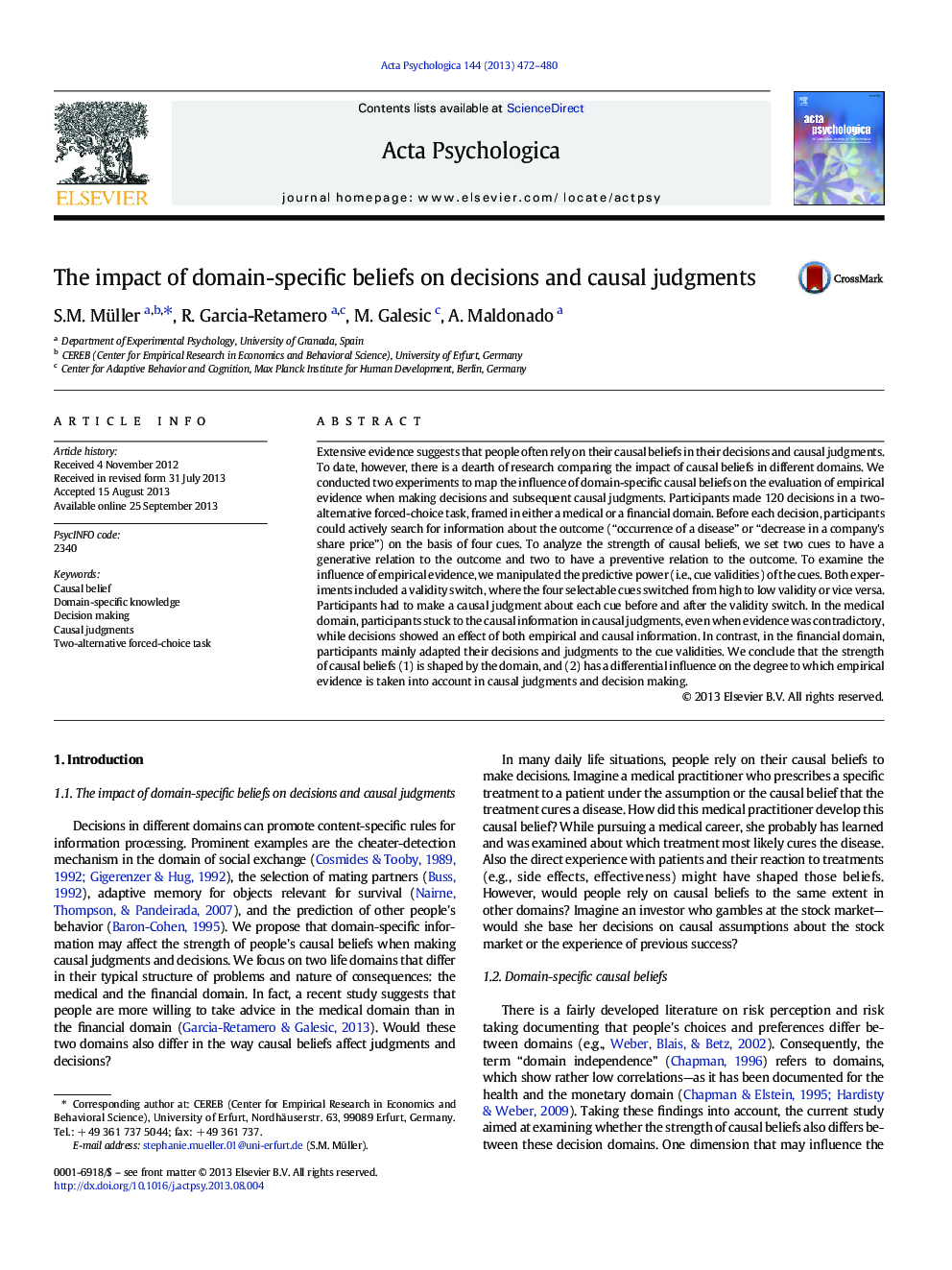| Article ID | Journal | Published Year | Pages | File Type |
|---|---|---|---|---|
| 10453797 | Acta Psychologica | 2013 | 9 Pages |
Abstract
Extensive evidence suggests that people often rely on their causal beliefs in their decisions and causal judgments. To date, however, there is a dearth of research comparing the impact of causal beliefs in different domains. We conducted two experiments to map the influence of domain-specific causal beliefs on the evaluation of empirical evidence when making decisions and subsequent causal judgments. Participants made 120 decisions in a two-alternative forced-choice task, framed in either a medical or a financial domain. Before each decision, participants could actively search for information about the outcome (“occurrence of a disease” or “decrease in a company's share price”) on the basis of four cues. To analyze the strength of causal beliefs, we set two cues to have a generative relation to the outcome and two to have a preventive relation to the outcome. To examine the influence of empirical evidence, we manipulated the predictive power (i.e., cue validities) of the cues. Both experiments included a validity switch, where the four selectable cues switched from high to low validity or vice versa. Participants had to make a causal judgment about each cue before and after the validity switch. In the medical domain, participants stuck to the causal information in causal judgments, even when evidence was contradictory, while decisions showed an effect of both empirical and causal information. In contrast, in the financial domain, participants mainly adapted their decisions and judgments to the cue validities. We conclude that the strength of causal beliefs (1) is shaped by the domain, and (2) has a differential influence on the degree to which empirical evidence is taken into account in causal judgments and decision making.
Related Topics
Life Sciences
Neuroscience
Cognitive Neuroscience
Authors
S.M. Müller, R. Garcia-Retamero, M. Galesic, A. Maldonado,
